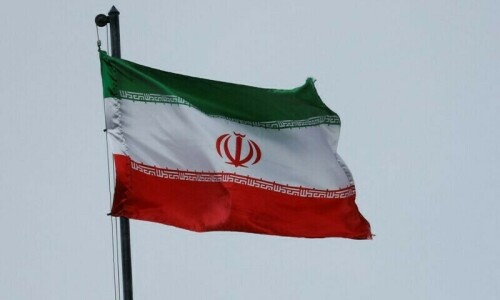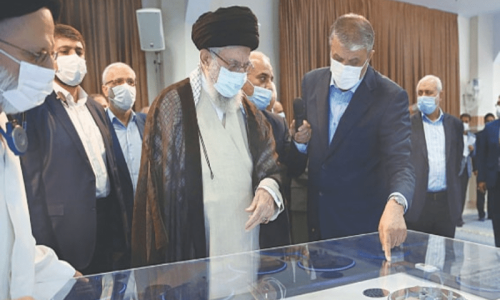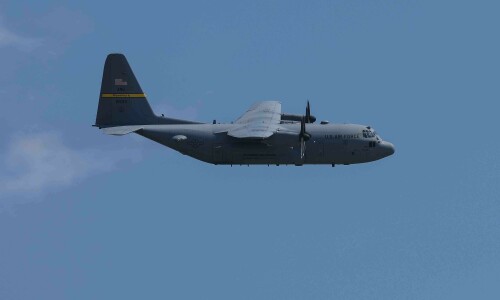TEHRAN: Iran’s nuclear negotiator on Tuesday said he had met with diplomats from three European countries in Abu Dhabi to discuss a number of issues including the country’s atomic energy programme.
“Following diplomatic consultations with regional and extra-regional parties, we met with our German, French and British counterparts in Abu Dhabi and discussed a range of issues,” deputy foreign minister and top nuclear negotiator Ali Bagheri tweeted.
Germany’s foreign ministry said the meeting took place on Monday and that discussions broached topics concerning Iran’s nuclear programme.
State news agency IRNA added that Bagheri was also in Abu Dhabi to discuss with the officials the promotion of bilateral cooperation and to review regional issues.
Iran’s nuclear programme has long been the subject of scrutiny from Western powers, resulting in sanctions that have hit the country’s economy.
A landmark deal in 2015, formally known as the Joint Comprehensive Plan of Action (JCPOA), gave Iran sanctions relief in exchange for curbs on its nuclear programme to guarantee that Tehran could not develop a nuclear weapon — something it has always denied wanting to do.
But the US unilateral withdrawal from the accord in 2018 under then-president Donald Trump and the reimposition of biting economic sanctions prompted Iran to begin rolling back on its own commitments.
On-off negotiations with France, Germany, Britain, Russia and China directly, and the United States indirectly to revive the deal have stalled in the past months.
Iranian foreign ministry spokesman Nasser Kanani on Monday said the country has continued indirect negotiations with the United States over the issue.
On Sunday, Iran’s supreme leader Ayatollah Ali Khamenei reiterated that the country does not seek to acquire a nuclear weapon, adding that agreements could be reached in certain nuclear fields.
Published in Dawn, June 14th, 2023















































Dear visitor, the comments section is undergoing an overhaul and will return soon.